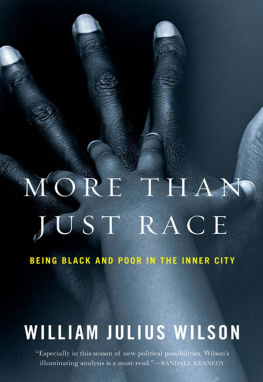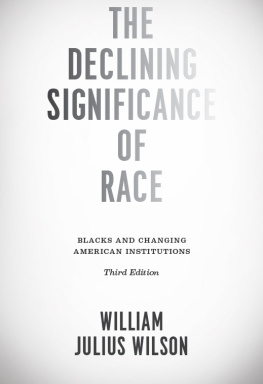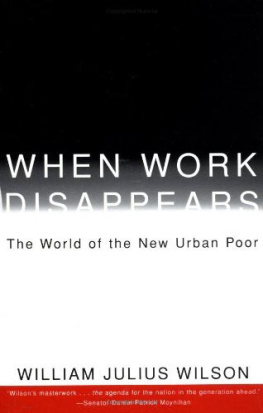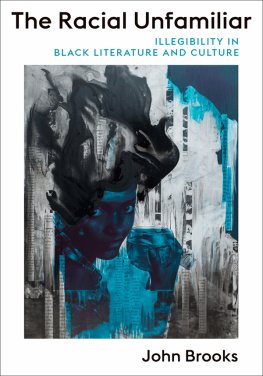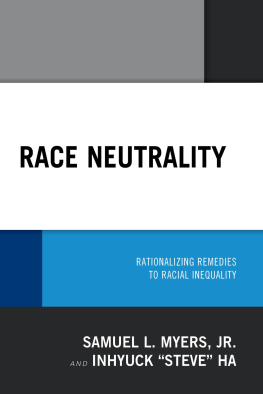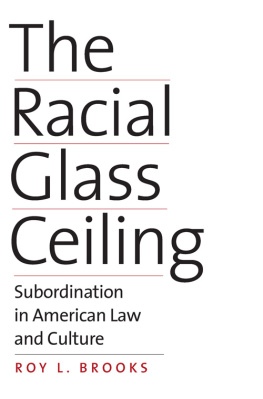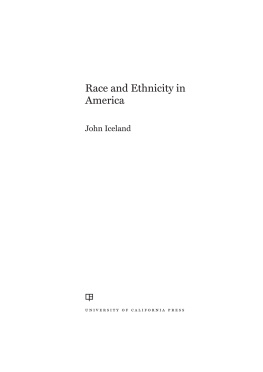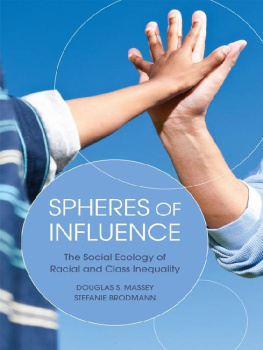In a forceful repudiation of the conventions of colorblindness, Wilson calls upon social scientists and policy makers to confront the problem of durable inequality anew. Wilson argues that deep-in-the-bone racial indifference, seemingly neutral policies like highway construction, and the weakening of informal job information networks all work together to reinforce the architecture of racial isolation. In order to intervene constructively, policymakers need to galvanize political will . But first they need the intellectual will to probe beyond conventional wisdom on either the right or the left to explore the structural foundations and the cultural adaptations that cement the linkage between being black and poor in the inner city.
William Julius Wilson is one of the nations foremost thinkers and advocates for poor Americans. At this moment in our history, Bills voice and ideas are needed more than ever. In More Than Just Race , Bill tackles some of the toughest and most intractable issues facing our country in a hopeful and powerful way. The intersection of race and poverty in America needs the kind of head-on, incisive treatment that is Bills trademark.
Wilson has given us a compellingly evidence-based comparison of the socioeconomic and cultural causes of African American urban poverty and its consequences. His insightful analysis enables us to confront the continuing moral and political question: how to allocate the blame and the responsibility for the worsening plight and pathology among so many of the countrys poorest citizens.
Herbert J. Gans, author of Imagining America in 2033
A courageous, provocative, and penetrating analysis that powerfully illuminates the true social condition of the urban pooressential reading for anyone interested in urban inequality in America.
Also by William Julius Wilson
There Goes the Neighborhood (coauthor)
Good Kids from Bad Neighborhoods (coauthor)
The Bridge over the Racial Divide
When Work Disappears
The Truly Disadvantaged
The Declining Significance of Race
Power, Racism, and Privilege
American Becoming (coeditor)
Poverty, Inequality and the Future of Social Policy (coeditor)
Sociology and the Public Agenda (editor)
The Ghetto Underclass (editor)
Through Different Eyes (coeditor)
Issues of Our Time
O urs has been called an information age, but, though information has never been more plentiful, ideas are what shape and reshape our world. Issues of Our Time is a series of books in which some of todays leading thinkers explore ideas that matter in the new millennium. The authorsbeginning with the philosopher Kwame Anthony Appiah, the lawyer and legal scholar Alan Dershowitz, and the Nobel Prizewinning economist Amartya Senhonor clarity without shying away from complexity; these books are both genuinely engaged and genuinely engaging. Each recognizes the importance not just of our values but also of the way we resolve the conflicts among those values. Law, justice, identity, morality, and freedom: concepts such as these are at once abstract and utterly close to home. Our understanding of them helps define who we are and who we hope to be; we are made by what we make of them. These are books, accordingly, that invite the reader to reexamine hand-me-down assumptions and to grapple with powerful trends. Whether you are moved to reason together with these authors, or to argue with them, they are sure to leave your views tested, if not changed. The perspectives of the authors in this series are diverse, the voices are distinctive, the issues are vital.
H ENRY L OUIS G ATES J R., SERIES EDITOR
W. E. B. D U B OIS P ROFESSOR OF THE H UMANITIES
H ARVARD U NIVERSITY
Issues of Our Time
Other titles
KWAME ANTHONY APPIAH
Cosmopolitanism
AMARTYA SEN
Identity and Violence: The Illusion of Destiny
ALAN DERSHOWITZ
Preemption: A Knife That Cuts Both Ways
CHARLES FRIED
Modern Liberty and the Limits of Government
Forthcoming authors
LOUIS MENAND
CLAUDE STEELE
AMY GUTMANN
NICHOLAS LEMANN
MORE THAN JUST RACE
BEING BLACK AND POOR IN THE INNER CITY
William Julius Wilson

W. W. NORTON & COMPANY
NEW YORK LONDON
Copyright 2009 by William Julius Wilson
All rights reserved
For information about permission to reproduce selections from this book, write to Permissions, W. W. Norton & Company, Inc., 500 Fifth Avenue, New York, NY 10110
Production manager: Anna Oler
Library of Congress Cataloging-in-Publication Data
Wilson, William J., 1935
More than just race: being black and poor in the inner city /
William Julius Wilson.
p. cm.
Includes bibliographical references.
ISBN: 978-0-393-07352-2
1. EqualityUnited States. 2. African-AmericansSocial conditions. 3. Social classesUnited States. 4. Inner citiesUnited States. I. Title.
HM821.W55 2009
305.5'690899607301732dc22 2008051239
W. W. Norton & Company, Inc.
500 Fifth Avenue, New York, N.Y. 10110
www.wwnorton.com
W. W. Norton & Company Ltd.
Castle House, 75/76 Wells Street, London W1T 3QT
To Jittima
ACKNOWLEDGMENTS
In the preparation of this book, I am indebted to a number of individuals. I am grateful to my editors at W. W. NortonRoby Harrington and Mollie Eisenbergfor helpful comments on various drafts that improved the clarity of my arguments and the overall flow of the manuscript. I owe a great deal to Susan Allan for her assistance in making the book more accessible to a lay audience, to Edward Walker for his careful proofreading and editing of various drafts of the manuscript, and to Stephanie Hiebert for skillful copyediting that further improved the books readability. I would also like to thank Anmol Chaddha for his careful research of library materials and government documents used in More than Just Race .
I am also indebted to the following scholars, who read an entire draft of the manuscript and provided detailed and insightful comments that led to significant revisions: Deirdre Bloome, Anmol Chaddha, Michle Lamont, Christopher Muller, James Quane, Eva Rosen, Tommy Shelby, and Van Tran. Furthermore, I am grateful for the exchange of ideas I had with Robert Asen, Mario Small, and Erik Wright that are reflected in a number of arguments in the book.
Finally, I would like to give a very special thanks to Jessica Houston Su, the coordinator of the Joblessness and Urban Poverty Program that I direct at Harvard University. She improved various drafts of the manuscript with her substantive and editorial comments; and her creative synthesis of materials from a number of archival documents, government documents, and secondary literature greatly facilitated not only my analysis of data, but the organization of my arguments as well.
All of the chapters in this book are original, although a few rewritten paragraphs and quotations from my book When Work Disappears (copyright 1996 by William Julius Wilson and used by permission of Alfred A. Knopf, a division of Random House) are integrated into Chapters 3 and 4. And parts of an essay I wrote, entitled The Economic Plight of Inner-City Black Males (from Against the Wall: Poor, Young, Black, and Male , edited by Elijah Anderson, copyright 2008, used by permission of University of Pennsylvania Press) were integrated into Chapter 3.

